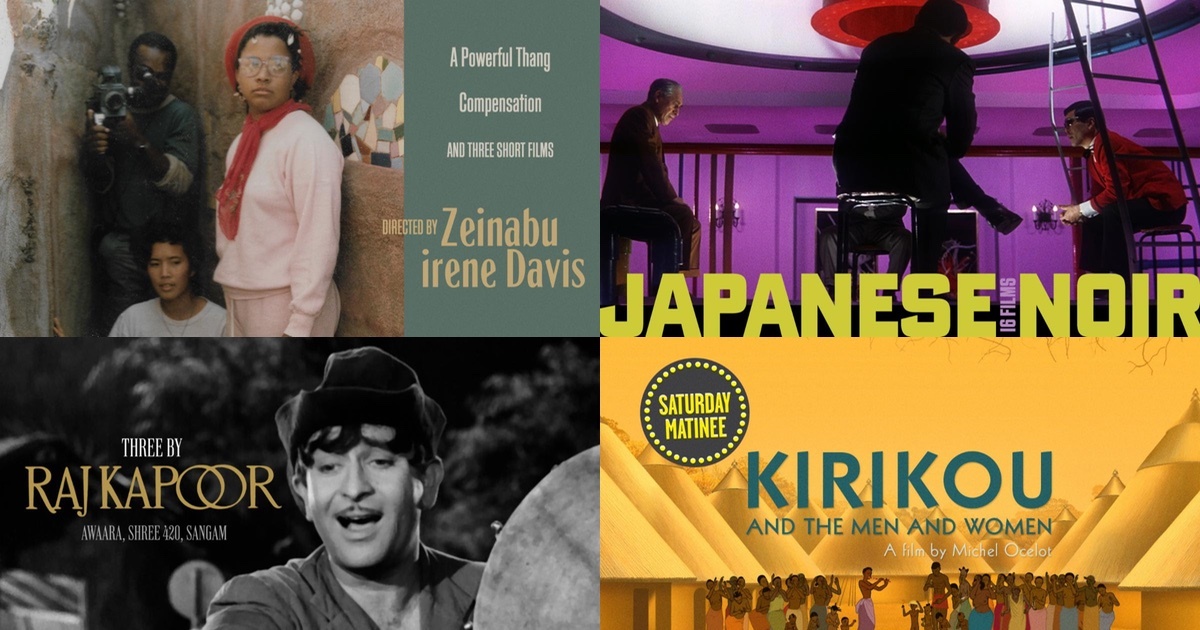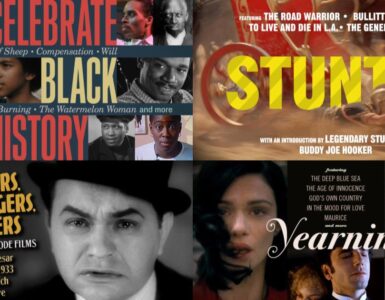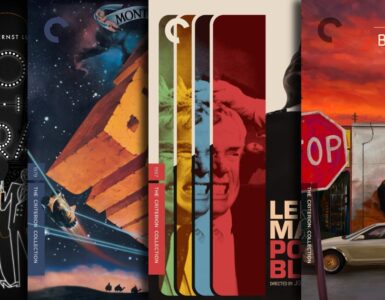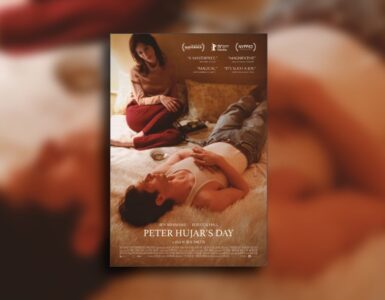Each month, the programmers at the Criterion Channel produce incredible line-ups for their subscribers. For January, the Channel will feature films from Zeinabu irene Davis, Raj Kapoor, Julien Temple, and more!
Below you’ll find the programming schedule for the month, along with a complete list of titles that Criterion has in store for us. Don’t forget to check the Criterion Channel’s main page regularly though, as they occasionally will drop surprises that aren’t included in the official press release.
Don’t subscribe yet? Start a 14-day free trial

Explore Exclusive Commentaries
There are few better ways to get to know a film inside and out than watching it with audio commentary—a form originally pioneered by the Criterion Collection back in the days of laserdisc! You can find hundreds of them on the Channel, featuring the directors, actors, writers, and other collaborators behind your favorite movies, as well as film scholars and critics. Check out the new Commentaries section on the Channel, where we’ve selected a number of our favorites, including Michael Powell and Martin Scorsese on Black Narcissus; D. A. Pennebaker, Elaine Stritch, and Harold Prince on Original Cast Album: “Company”; Wim Wenders and Peter Falk on Wings of Desire; and David Mamet and Ricky Jay on House of Games.
Friday, January 1

Double Feature: Madcap Mirth with Katharine and Cary
Holiday and Bringing Up Baby
Katharine Hepburn and Cary Grant make screwball sparks in two all-time classic comedies that fizz like fine champagne. First, Grant is the free-spirited charmer who brings some much-needed joie de vivre into the life of Hepburn’s black-sheep heiress in the New Year’s Eve–set Holiday, directed with a perfect balance of brio and poignancy by George Cukor. Then, it’s Hepburn who’s the mischief-maker opposite Grant’s stuffy paleontologist in Howard Hawks’s Bringing Up Baby, a giddy high-wire act of comic invention involving a missing dinosaur bone, a leopard named Baby, and some of the fastest and funniest dialogue ever unleashed on-screen.
Saturday, January 2
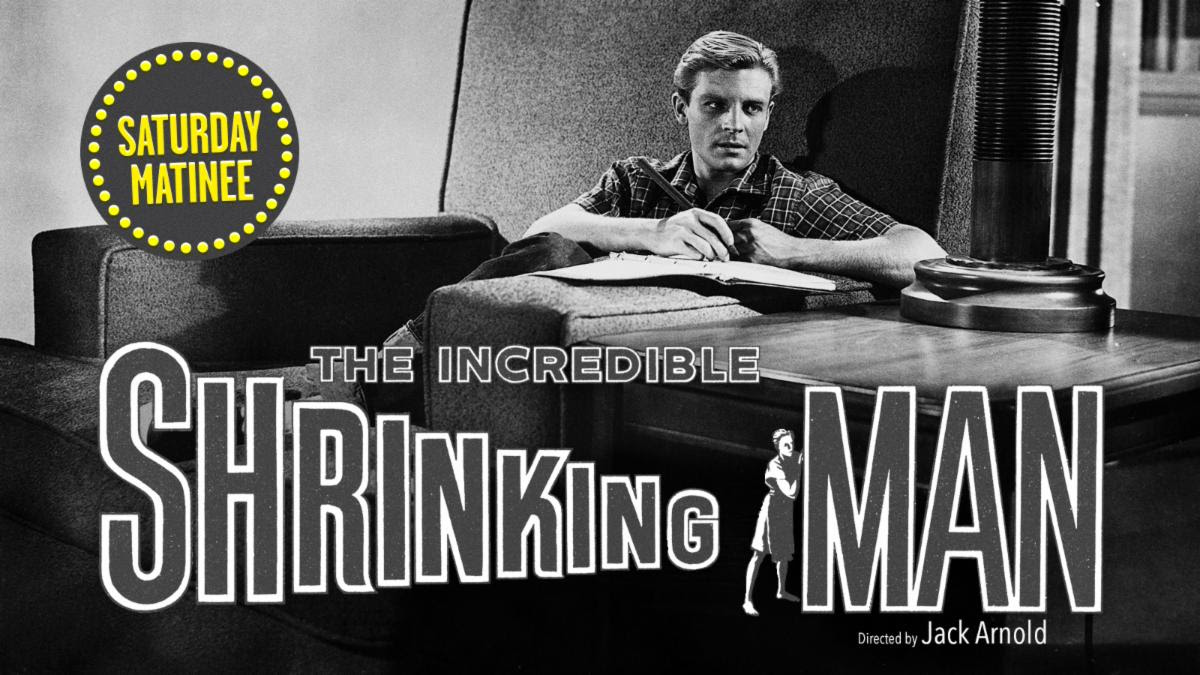
Saturday Matinee: The Incredible Shrinking Man
This existential science-fiction drama boasts some of the most ingenious special effects of the 1950s, as well as a surprisingly sophisticated philosophical underpinning. While catching some rays on his brother’s yacht, Scott Carey (Grant Williams) is enveloped by a mysterious cloud. Soon after, he discovers that he’s getting thinner—and smaller. As the rapidly diminishing Scott adjusts to a new life in which ordinary house cats and spiders are adversaries in a fight for survival, he is also left to ponder the meaning of his increasingly small place in the universe. Directed by genre specialist Jack Arnold (It Came from Outer Space, The Creature from the Black Lagoon) and written by legendary fantasy author Richard Matheson, The Incredible Shrinking Man is true B-movie poetry.
Sunday, January 3
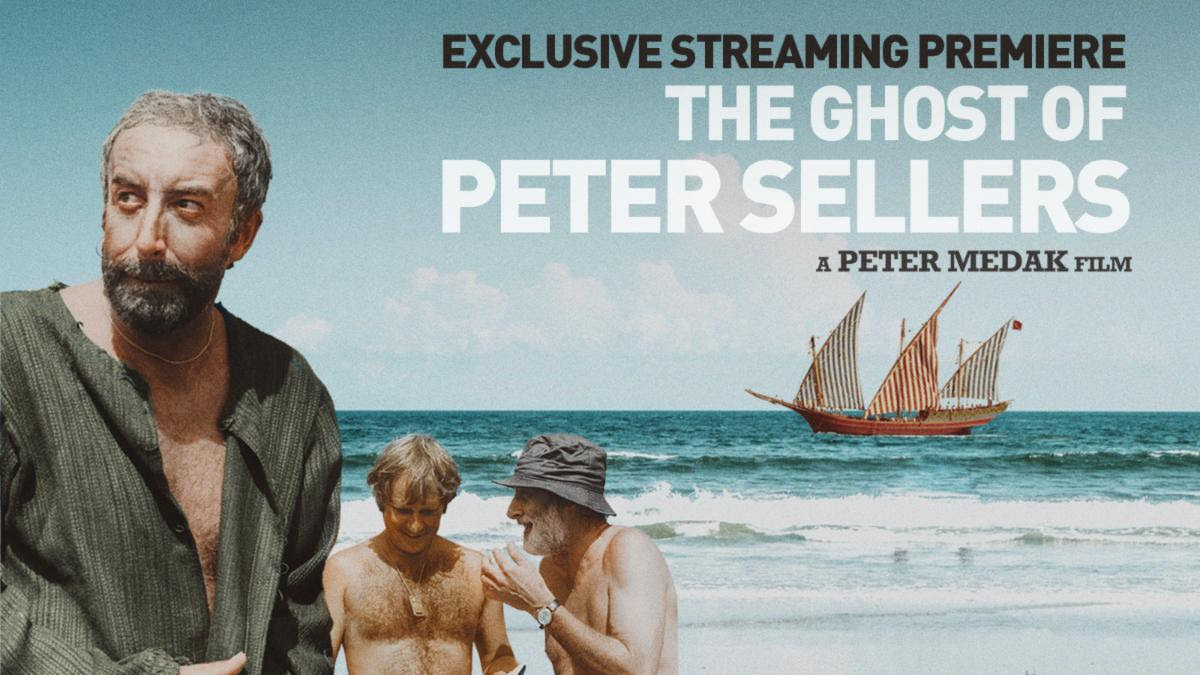
The Ghost of Peter Sellers
Streaming premiere
In 1973, comic genius Peter Sellers and his former The Goon Show collaborator Spike Milligan traveled to the coast of Cyprus to star in Ghost in the Noonday Sun, a seventeenth-century-set pirate spoof helmed by up-and-coming director Peter Medak. From the moment shooting started, it was a disaster of epic proportions, with the erratic Sellers seemingly determined to sabotage the film with his outrageous antics. Featuring a wealth of footage from the troubled production, The Ghost of Peter Sellers follows Medak as he returns to Cyprus forty-two years later to revisit the bizarre, hysterical, and heartbreaking experience of directing one of the greatest boondoggles in cinematic history, the making of which proved to be far wilder than anything captured on-screen.
Sunday, January 3

Starring Peter Sellers
Comic chameleon Peter Sellers famously claimed to have no personality of his own. Instead, he saw himself as the medium through which his characters, which include some of the most memorable in all of twentieth-century cinema, were brought to life. Having pioneered a distinctly British brand of absurdist humor on the influential radio program The Goon Show, Sellers brought his peerless gifts for mimicry and physical transformation to the screen with standout turns in classics like The Ladykillers and I’m All Right Jack. It was Stanley Kubrick, however, who fully unleashed the actor’s potential, giving him virtuoso showcases in the provocative Nabokov adaptation Lolita and the subversive Cold War spoof Dr. Strangelove, the latter of which made the most of Sellers’s remarkable talent for inhabiting multiple, meticulously realized characters within the same movie. Sellers set the template for a new kind of comic star—one who was as celebrated for his quick wit and improvisatory genius as he was for his actorly range and technical sophistication.
Features
- The Ladykillers, Alexander Mackendrick, 1955
- I’m All Right Jack, John Boulting, 1959
- The Mouse That Roared, Jack Arnold, 1959
- Never Let Go, John Guillermin, 1960
- Mr. Topaze, Peter Sellers, 1961
- Lolita, Stanley Kubrick, 1962
- Only Two Can Play, Sidney Gilliat, 1962
- Dr. Strangelove, or: How I Learned to Stop Worrying and Love the Bomb, Stanley Kubrick, 1964
- The Optimists, Anthony Simmons, 1973
Shorts
- Let’s Go Crazy, Alan Cullimore, 1951
Sunday, January 3
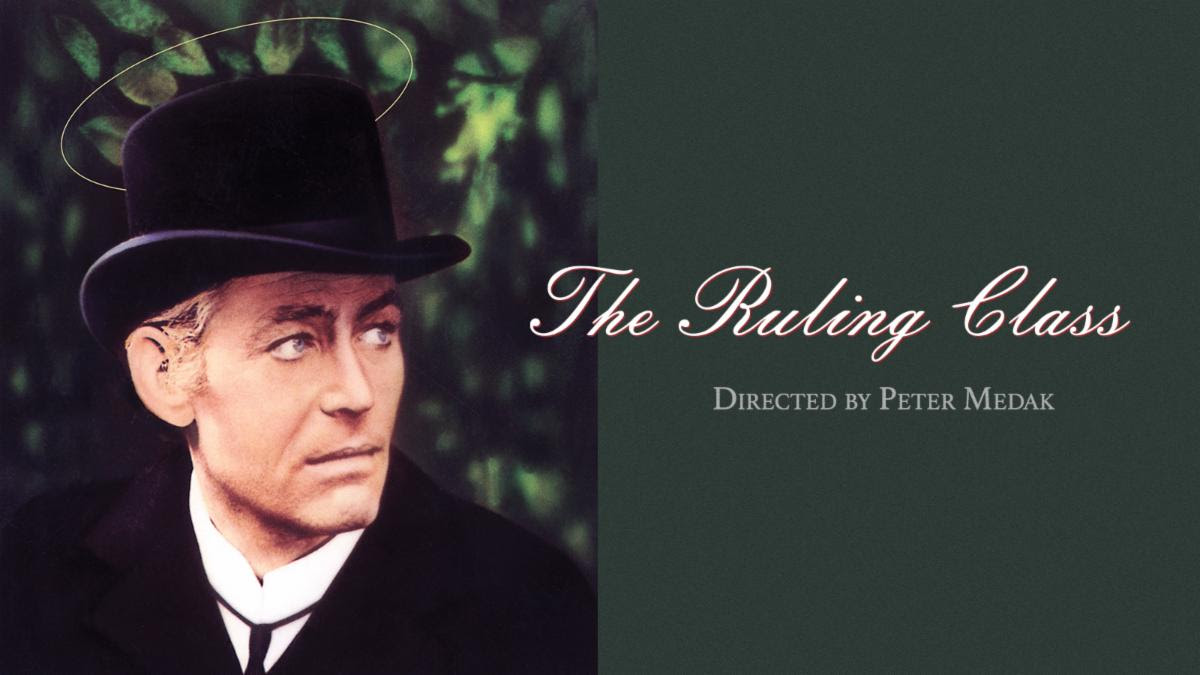
The Ruling Class: Criterion Collection Edition #132
Peter O’Toole gives a tour-de-force performance as Jack, a man “cured” of believing he’s God—only to become Jack the Ripper incarnate. Based on Peter Barnes’s irreverent play, this darkly comic indictment of Britain’s class system peers behind the closed doors of English aristocracy. Insanity, sadistic sarcasm, and black comedy—with just a touch of the Hollywood musical—are all featured in this beloved cult classic directed by Peter Medak. SUPPLEMENTAL FEATURES: Audio commentary featuring Peter O’Toole, Peter Medak, and writer Peter Barnes; Medak’s home movies, shot on location for The Ruling Class; a collection of rare publicity and behind-the-scenes production stills; and more.
Monday, January 4
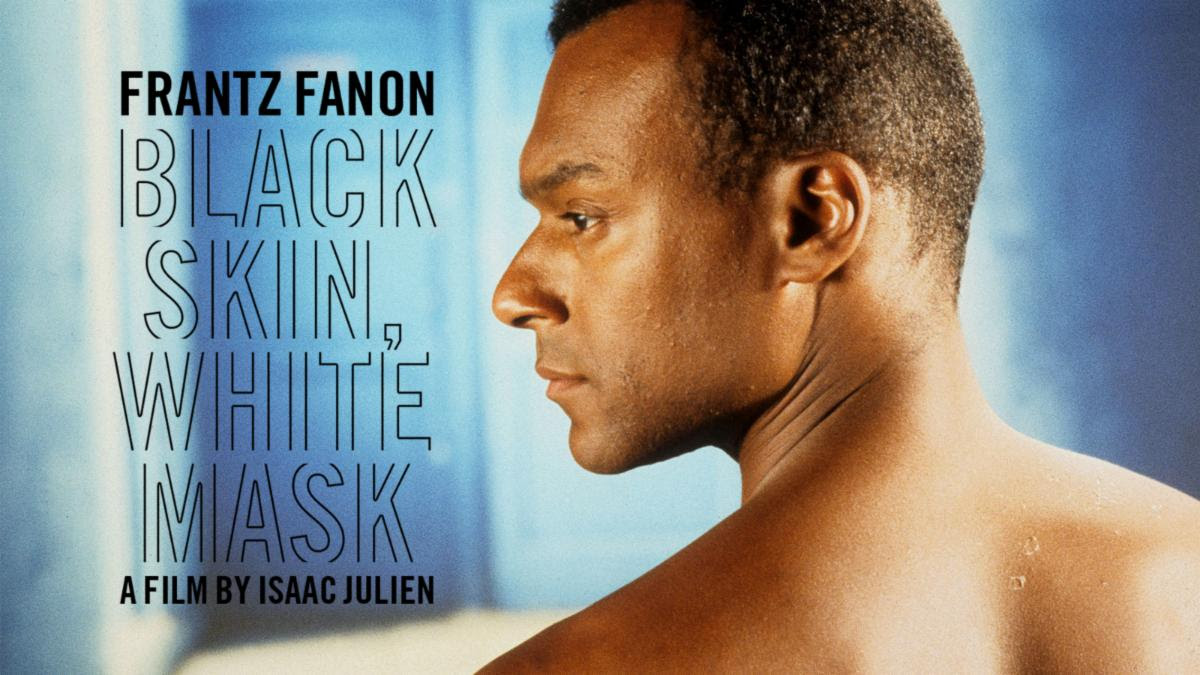
Frantz Fanon: Black Skin, White Mask
Frantz Fanon: Black Skin, White Mask explores the world of the preeminent theorist of twentieth-century anticolonialism, a French West Indian psychiatrist and political philosopher whose writings gave expression to the psychological burdens of existing as a Black person in a white-dominated society. Artist and filmmaker Isaac Julien interweaves the story of Fanon’s brief but eventful life with his long and tortuous inner journey, restoring the trailblazing thinker to his rightful place at the center of contemporary discussions around postcolonial identity.
Tuesday, January 5
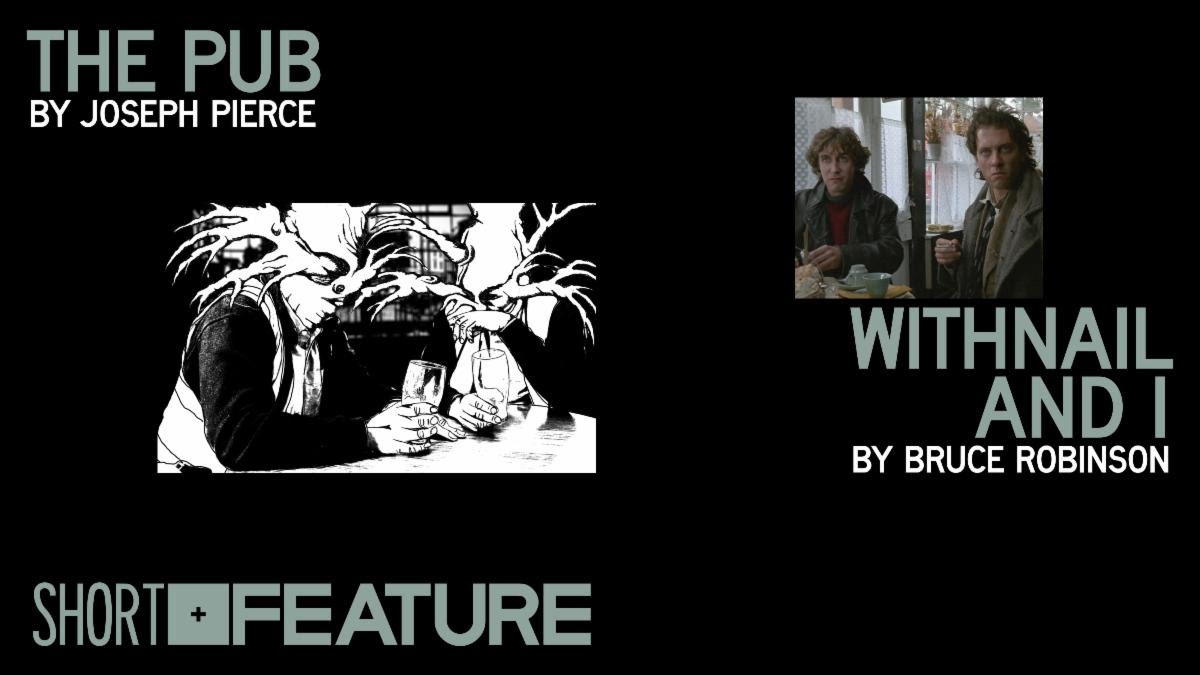
Short + Feature: Bottoms Up!
The Pub and Withnail and I
Grab a pint and raise a glass to two intoxicating tales of alcoholic abandon set on the seamy side of British life. A bar in London’s Camden Town morphs into a den of iniquity in The Pub, a shape-shifting nightmare animated in an expressionistic scrawl by Joseph Pierce. It’s a perfect aperitif to the black-comic bender that is Bruce Robinson’s legendary Withnail and I, in which a pair of boozy actors leave London for a hilariously misbegotten, alcohol-soaked excursion to the countryside, peppered with the endlessly quotable one-liners that have made the film an enduring cult favorite.
Wednesday, January 6

Monsoon Wedding: Criterion Collection Edition #489
Cultures and families clash in Mira Nair’s exuberant Monsoon Wedding, a mix of comedy and chaotic melodrama concerning the preparations for the arranged marriage of a modern upper-middle-class Indian family’s only daughter, Aditi. Of course there are hitches—Aditi has been having an affair with a married TV host; she’s never met her husband to be, who lives in Houston; the wedding has worsened her father’s hidden financial troubles; even the wedding planner has become a nervous wreck—as well as buried family secrets. But Nair’s celebration is ultimately joyful and cathartic: a love song to her home city of Delhi and her own Punjabi family. SUPPLEMENTAL FEATURES: Audio commentary featuring Nair; a selection of short documentary and fiction films by Nair featuring introductions by the director; an interview with actor Naseeruddin Shah, conducted by Nair; and more.
Thursday, January 7
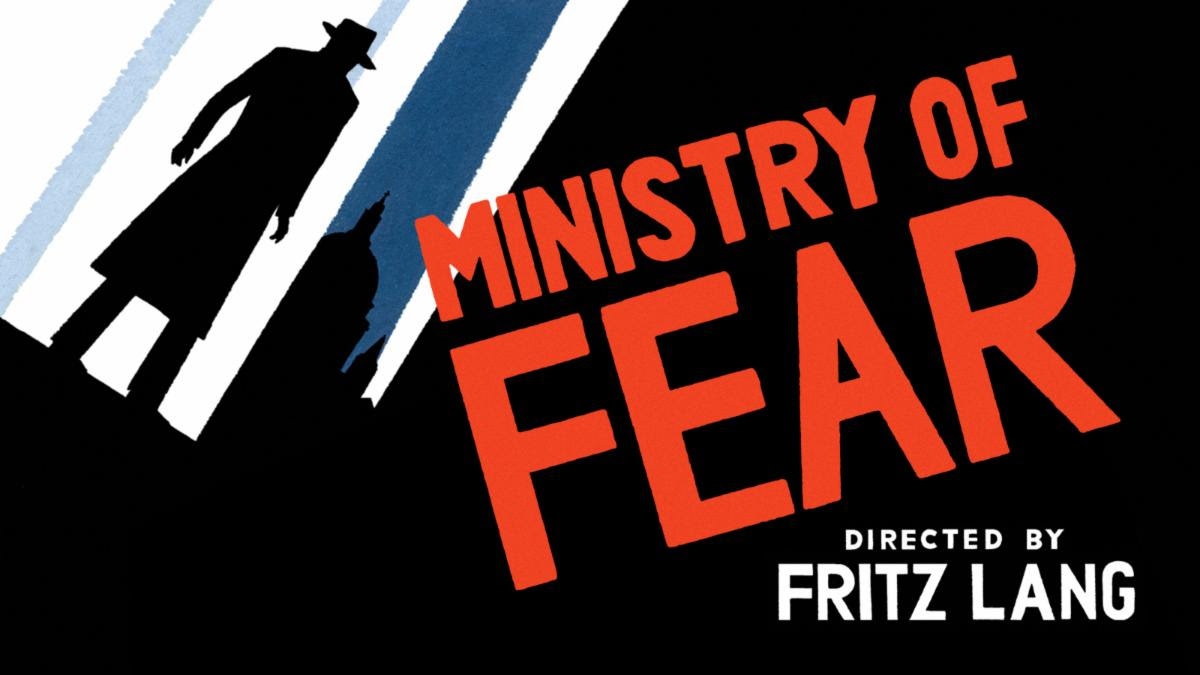
Ministry of Fear: Criterion Collection Edition #649
Suffused with dread and paranoia, this Fritz Lang adaptation of a novel by Graham Greene is a plunge into the eerie shadows of a world turned upside down by war. En route to London after being released from a mental institution, Stephen Neale (Ray Milland) stops at a seemingly innocent village fair, after which he finds himself caught in the web of a sinister underworld with possible Nazi connections. Lang was among the most illustrious of the European émigré filmmakers working in Hollywood during World War II, and Ministry of Fear is one of his finest American productions, an unpredictable thriller with style to spare. SUPPLEMENTAL FEATURES: An interview with Fritz Lang scholar Joe McElhaney.
Friday, January 8

Double Feature: Frank’s Way
The Man with the Golden Arm and The Manchurian Candidate
Though he began his career as a teen-idol crooner, Frank Sinatra got a chance to reshape his image and explore the dark, complex edges of his persona through his acclaimed screen work. This pairing of two of his finest performances—as a heroin junkie in Otto Preminger’s taboo-shattering addiction drama The Man with the Golden Arm and an ex-POW sucked into a sinister brainwashing plot in John Frankenheimer’s Cold War thriller The Manchurian Candidate—showcases the tense, nervy volatility that made him such a compelling performer.
Saturday, January 9
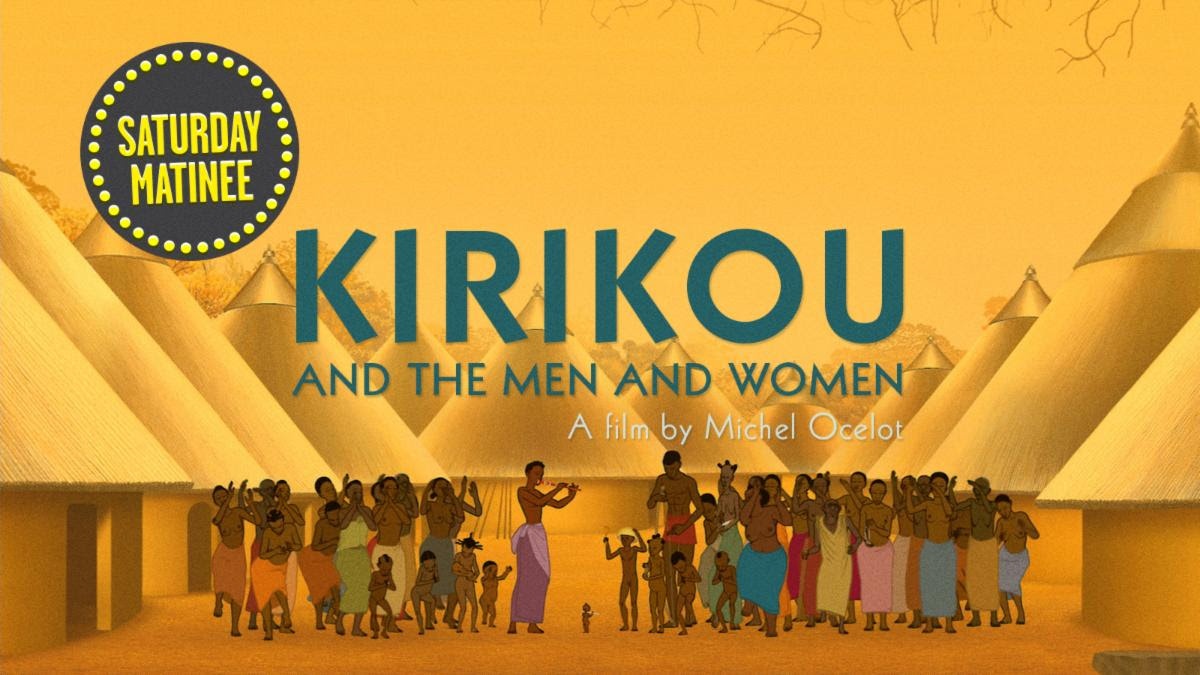
Saturday Matinee: Kirikou and the Men and Women
The third film by celebrated French animator Michel Ocelot about the exploits of the irrepressible young Kirikou, a feisty infant with a big heart, follows his adventures as he uses his wits to save his fellow villagers from a host of problems—including the threats of an evil sorceress. Told through the eyes of Kirikou’s grandfather, the Wise Man who lives in the Forbidden Mountain, the stories mix mythology, fable, and humor to teach important lessons about courage, self-belief, and tolerance.
Sunday, January 10
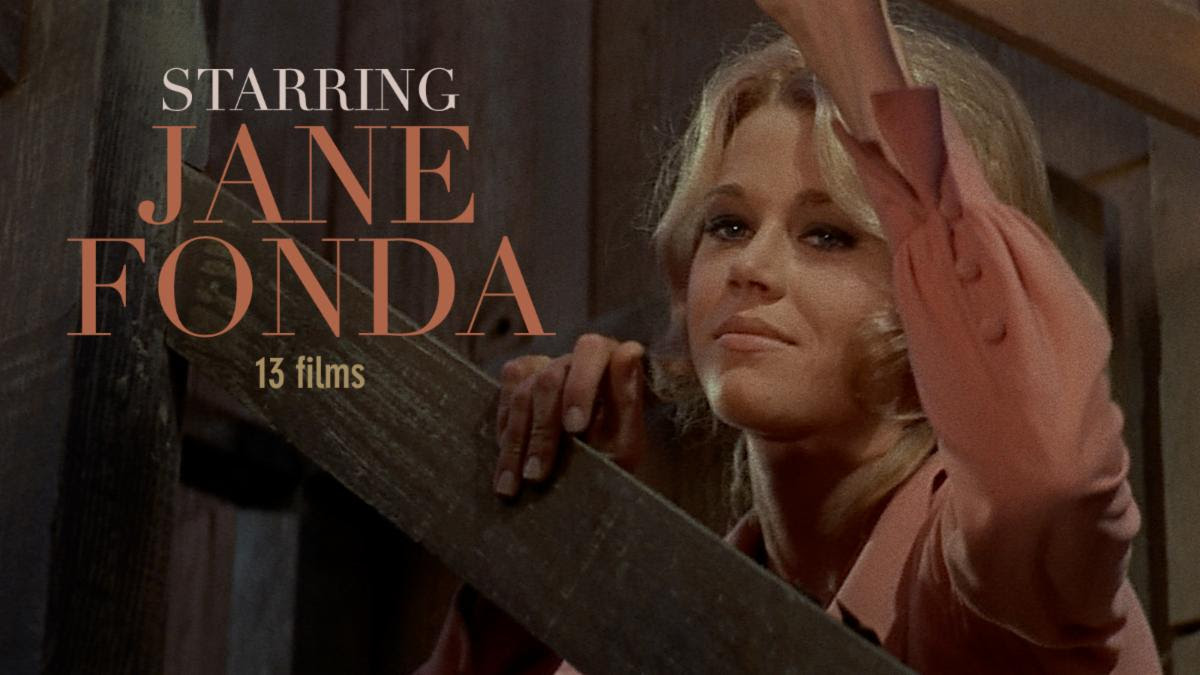
Starring Jane Fonda
Actor, activist, exercise guru, businesswoman, star of Hollywood hits and French art-house cinema alike—Jane Fonda has worn more hats than just about any performer of her generation and continues to be an outspoken fighter for social and environmental justice. Though she was born the daughter of Hollywood royalty, Fonda refused to rest on her famous name, training under Lee Strasberg at the Actors Studio and parlaying her early successes in hits like the rollicking western comedy Cat Ballou and the sci-fi cult extravaganza Barbarella into increasingly complex, challenging roles in acclaimed films such as the edgy neonoir Klute (for which she won her first best actress Oscar) and the prescient disaster thriller The China Syndrome. The fact that Fonda, at the height of her stardom, was one of the most visible faces of the civil rights and antiwar movements—and even decamped to France to star in Tout va bien, a radical anticapitalist screed by Jean-Luc Godard and Jean-Pierre Gorin—puts Fonda virtually in a class by herself for her rare combination of superstar talent and fearless political conviction.
- Walk on the Wild Side, Edward Dmytryk, 1962
- La ronde, Roger Vadim, 1964
- Cat Ballou, Elliot Silverstein, 1965
- The Chase, Arthur Penn, 1966
- Barefoot in the Park, Gene Saks, 1967
- Barbarella, Roger Vadim, 1968
- Spirits of the Dead, Federico Fellini, Louis Malle, and Roger Vadim, 1968
- Klute, Alan J. Pakula, 1971
- Tout va bien, Jean-Luc Godard and Jean-Pierre Gorin, 1972
- Letter to Jane, Jean-Luc Godard and Jean-Pierre Gorin, 1972
- A Doll’s House, Joseph Losey, 1973
- The China Syndrome, James Bridges, 1979
- The Morning After, Sidney Lumet, 1986
Monday, January 11

Poto and Cabengo
Grace and Virginia are young San Diego twins who speak unlike anyone else. With little exposure to the outside world, the two girls have created a private form of communication that’s an amalgam of the distinctive English dialects they hear at home. Jean-Pierre Gorin’s polyphonic nonfiction investigation of this phenomenon looks at the family from a variety of angles, with the director taking on the role of a sort of sociological detective. It’s a delightful and absorbing study of words and faces, mass media and personal isolation, and America’s odd margins.
Tuesday, January 12

Short + Feature: The Jimi Hendrix Experience
Jimi Could Have Fallen from the Sky and Jimi Plays Monterey
The life, music, and legend of Jimi Hendrix lives on in these tributes to his once-in-a-generation genius. Cosmic surrealist Terence Nance lets his imagination run riot in Jimi Could Have Fallen from the Sky, a playful remythologizing of Hendrix’s origin story that adds a surprising sci-fi twist to its telling of his Seattle childhood. Then, witness Hendrix’s awe-inspiring six-string pyrotechnics for yourself in Jimi Plays Monterey, a you-are-there document of an electrifying 1967 live performance captured by D. A. Pennebaker and Chris Hegedus when the future rock icon was still a virtual unknown.
Wednesday, January 13
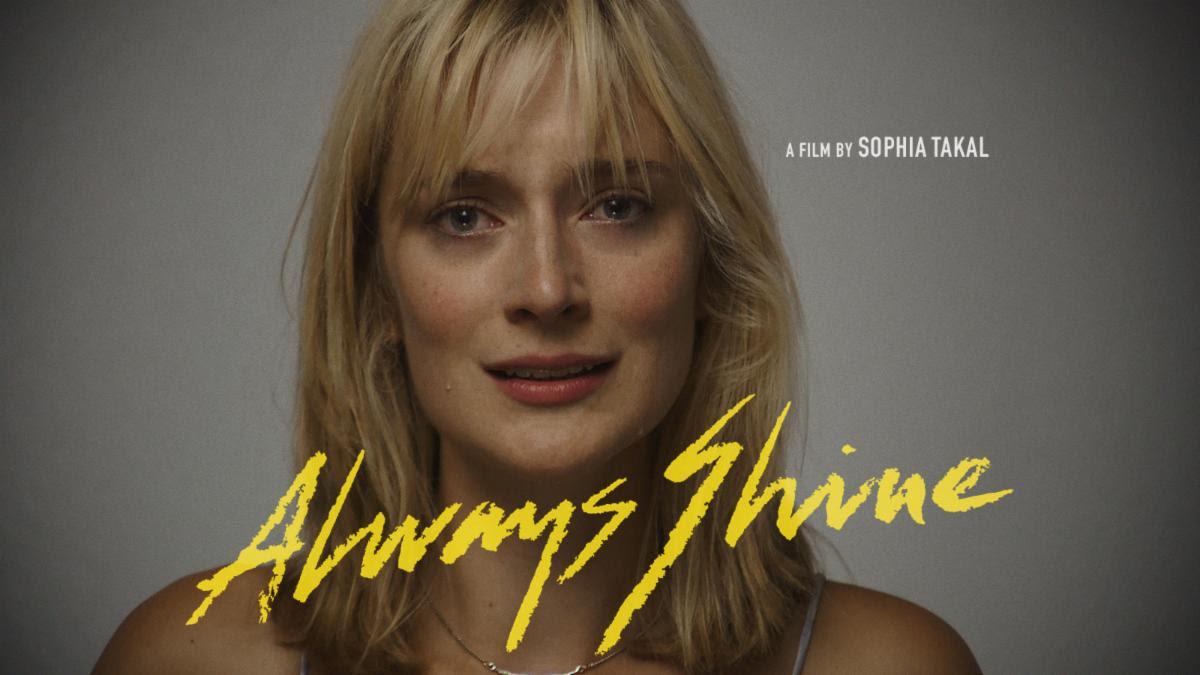
Always Shine
Director Sophia Takal offers a tense and disquieting exploration of female friendship, rivalry, and Hollywood sexism in this provocative psychological thriller. Two friends (Mackenzie Davis and Caitlin FitzGerald), actors who have experienced vastly different levels of success, leave Los Angeles for Big Sur on a weekend getaway to reconnect. Once alone, however, the two women’s suppressed jealousies and deep-seated resentments bubble to the surface, causing them to lose grasp not just of the true nature of their relationship, but also of their own identities.
Thursday, January 14

Three by Raj Kapoor
One of the greatest showmen the cinema has ever seen, actor, producer, and director Raj Kapoor became a Bollywood icon thanks to his ability to blend comedy, pathos, and musical spectacle into rousing, deliriously entertaining underdog tales that spoke to the hopes and dreams of a newly independent India. This selection of classics from Kapoor’s golden period—including his blockbuster international sensation Awaara—gave Indian filmgoers a lovably Chaplinesque everyman hero of their own, one whose appeal remains as fresh and captivating as ever.
- Awaara, 1951
- Shree 420, 1955
- Sangam, 1964
Friday, January 15

Double Feature: Poe Goes Pop
The Masque of the Red Death and Spirits of the Dead
Edgar Allan Poe gets a stylish sixties update in four tales of macabre terror spread across two features. The most acclaimed of the numerous Poe adaptations director Roger Corman made with star Vincent Price, The Masque of the Red Death achieves a nightmarish beauty thanks to striking color cinematography by Nicolas Roeg. Then, Federico Fellini, Louis Malle, and Roger Vadim all offer their unique takes on Poe in Spirits of the Dead, a shivery, erotic, Euro-cool omnibus spectacle featuring Jane Fonda, Alain Delon, Brigitte Bardot, and Terence Stamp—the last of whom stars in Fellini’s celebrated Toby Dammit segment.
Saturday, January 16

Saturday Matinee: The Cameraman
Buster Keaton is at the peak of his slapstick powers in The Cameraman—the first film that the silent-screen legend made after signing with MGM, and his last great masterpiece. The final work over which he maintained creative control, this clever farce is the culmination of an extraordinary, decade-long run that produced some of the most innovative and enduring comedies of all time. Keaton plays a hapless newsreel cameraman desperate to impress both his new employer and his winsome office crush as he zigzags up and down Manhattan hustling for a scoop. Along the way, he goes for a swim (and winds up soaked), becomes embroiled in a Chinatown Tong War, and teams up with a memorable monkey sidekick (the famous Josephine). The marvelously inventive film-within-a-film setup allows Keaton’s imagination to run wild, yielding both sly insights into the travails of moviemaking and an emotional payoff of disarming poignancy. SUPPLEMENTAL FEATURES: A new score by composer Timothy Brock; audio commentary featuring Glenn Mitchell, author of A–Z of Silent Film Comedy: An Illustrated Companion; Spite Marriage, Buster Keaton’s next feature for MGM following The Cameraman; and more.
Sunday, January 17

Japanese Noir
Featuring a new introduction by Imogen Sara Smith
Just as postwar disillusionment infiltrated American pop culture and found its way to Hollywood in the form of film noir, so it did in Japan, where a wave of edgy, existential crime dramas spread like a shadow across the Land of the Rising Sun. With Stray Dog, Akira Kurosawa applied the chiaroscuro visual style and hard-boiled sensibility of American noir to a corrosive portrait of Japanese society—anticipating a profusion of fatalistic thrillers and policiers that would prove wildly popular throughout the 1950s and ’60s. The so-called “mukokuseki akushun” (“borderless action”) film was a particular specialty of Nikkatsu, the boundary-pushing studio where renegade directors like Seijun Suzuki (Youth of the Beast), Shohei Imamura (Pigs and Battleships), Toshio Masuda (Rusty Knife), and Takashi Nomura (A Colt Is My Passport) frequently jazzed up the pulp formula with elements of the western, comedy, gangster, and teen-rebel genres. Featuring modernist-cool masterpieces like Pale Flower and Branded to Kill as well as ripe-for-discovery gems like Zero Focus and Intimidation, these cruel stories of guilt and desperation are a window into the dark heart of postwar Japan.
- Stray Dog, Akira Kurosawa, 1949
- Black River, Masaki Kobayashi, 1956
- I Am Waiting, Koreyoshi Kurahara, 1957
- Rusty Knife, Toshio Masuda, 1958
- Stakeout, Yoshitaro Nomura, 1958
- The Bad Sleep Well, Akira Kurosawa, 1960
- Intimidation, Koreyoshi Kurahara, 1960
- Take Aim at the Police Van, Seijun Suzuki, 1960
- Zero Focus, Yoshitaro Nomura, 1961
- Pigs and Battleships, Shohei Imamura, 1962
- High and Low, Akira Kurosawa, 1963
- Youth of the Beast, Seijun Suzuki, 1963
- Cruel Gun Story, Takumi Furukawa, 1964
- Pale Flower, Masahiro Shinoda, 1964
- Branded to Kill, Seijun Suzuki, 1967
- A Colt Is My Passport, Takashi Nomura, 1967
Monday, January 18
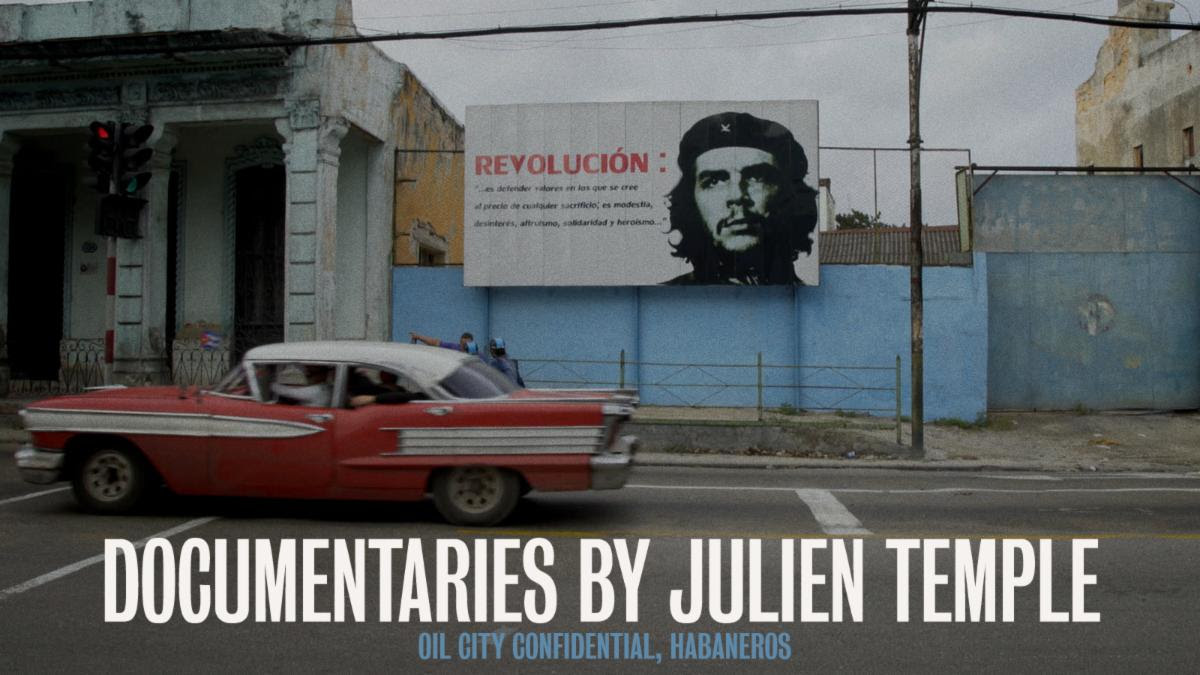
Documentaries by Julien Temple
British cinema’s preeminent chronicler of offbeat subcultures and musical undergrounds, Julien Temple began his career documenting the 1970s punk scene and has remained committed to telling under-the-radar stories ever since. These vivid documentaries—one a rollicking portrait of the greatest local band you’ve never heard of; the other a vibrant history of Havana from the nineteenth century to the present day—display the stylistic verve and passion for music that have become Temple’s trademarks.
- Oil City Confidential, 2009
- Habaneros, 2017
Tuesday, January 19
Short + Feature: Dangerous Encounters
Zoo and Code Unknown
Chance meetings between strangers spiral out of control in two chilling visions of racial violence and communication breakdown. First, a misunderstanding between three juveniles and an unstable man escalates past the point of no return in Montreal-based Ivorian-Ghananian filmmaker Will Niava’s intense, unflinching, and all-too-familiar Zoo. Its visceral style contrasts with the brilliantly controlled formalism of Austrian master Michael Haneke, whose provocative Code Unknown unfolds in a series of arresting long takes that trace the devastating fallout of a seemingly minor incident on the streets of Paris.
Wednesday, January 20

Directed by Zeinabu irene Davis
Emerging from the explosion of Black cinematic creativity known as the LA Rebellion, Zeinabu irene Davis combines narrative storytelling and a range of poetic experimental techniques to give voice to African American women’s experiences of love, joy, struggle, and self-realization. Her sublime feature Compensation—one of the most unjustly neglected works of 1990s American independent cinema—incorporates sign language and silent-film techniques as it traces two love stories involving Black deaf characters across generations. It is presented alongside innovative works like Cycles and A Powerful Thang, in which Davis employs animation and Afro-Haitian dance to lyrically portray intimate moments in the lives of Black women.
Features
- A Powerful Thang, 1991
- Compensation, 1999
Shorts
- Crocodile Conspiracy, 1986
- Cycles, 1989
- Mother of the River, 1995
Thursday, January 21

Three by Pablo Trapero
Featuring a new introduction by the filmmaker
One of the driving forces of contemporary Argentine cinema, director Pablo Trapero delves into his country’s gritty underbelly with heart-racing immediacy. Plunging fearlessly into a women’s prison (Lion’s Den), the corrupt mean streets of Buenos Aires (Carancho), and Argentina’s shantytown slums (White Elephant), Trapero’s films crackle with an electrifying realism and unrelenting intensity that have earned them comparisons to the work of Martin Scorsese. Featuring powerful performances from the director’s regular collaborator Martina Gusmán and Argentine superstar Ricardo Darín, these white-hot social dramas are searing portraits of life on the unforgiving margins.
- Lion’s Den, 2008
- Carancho, 2010
- White Elephant, 2012
Friday, January 22
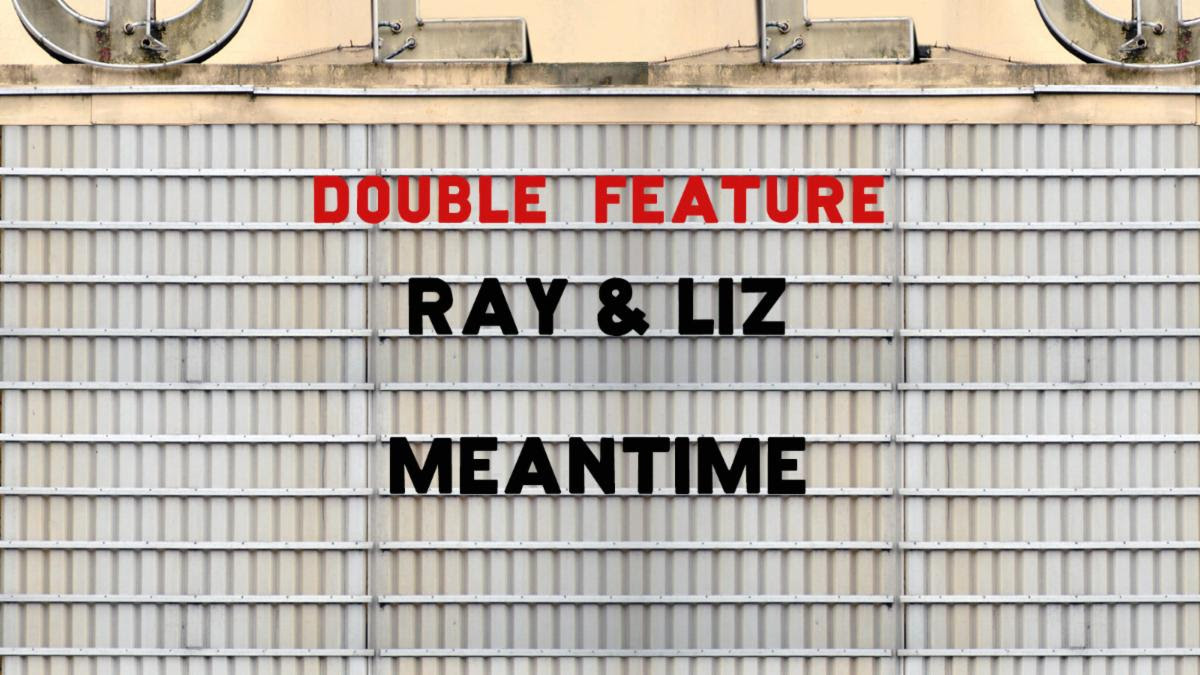
Double Feature: The Dole-drums
Ray & Liz and Meantime
Two families grapple with the ravages of poverty, apathy, and alcoholism in these unsparing yet darkly humorous portraits of life on the bottom rung of Thatcher’s Britain. In his richly impressionistic feature debut, acclaimed photographer Richard Billingham looks back at his dysfunctional Birmingham childhood and relationship to his addict parents, finding images of unexpected poetry amid the bleakness. Then, Mike Leigh directs early performances by Gary Oldman and Tim Roth in Meantime, a slow-burning depiction of economic degradation in 1980s England that marked the culmination of the celebrated writer-director’s pioneering work in television.
Saturday, January 23
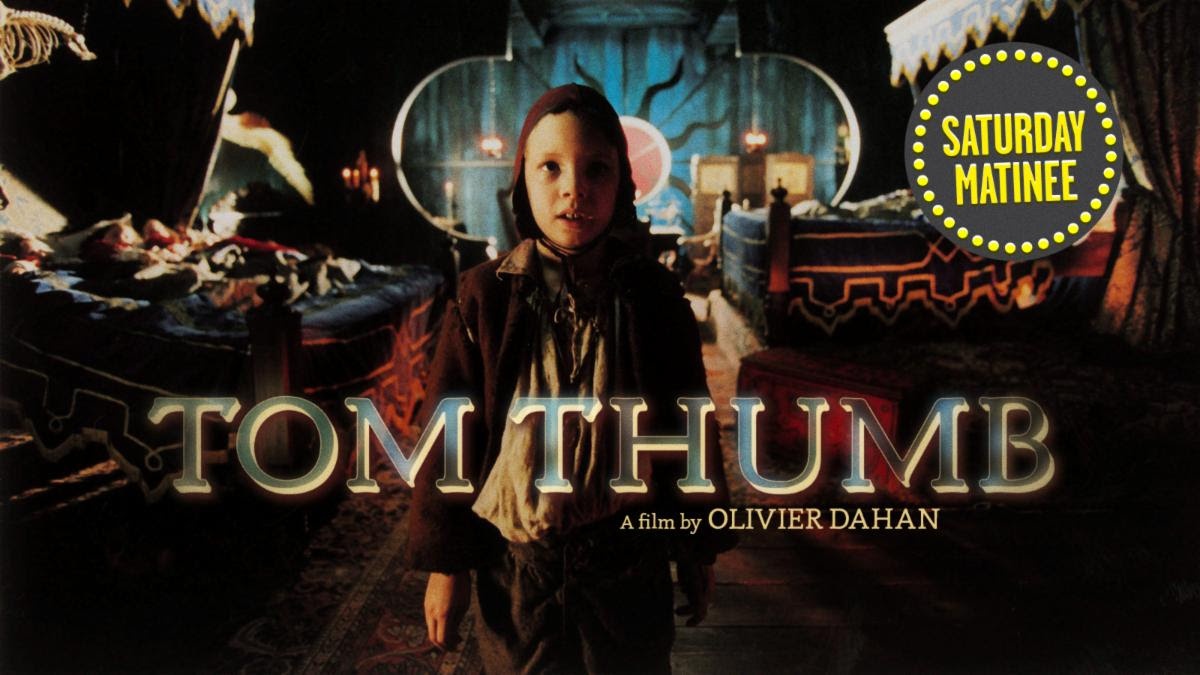
Saturday Matinee: Tom Thumb
This sumptuously mounted French fantasy, based on a classic story by Charles Perrault, follows the adventures of the young Poucet (Nils Hugon), who, when his parents abandon him and his siblings in a forest, must navigate a series of strange and fantastical encounters in order to find their way home. The imaginative art direction, captivating score by regular Hayao Miyazaki composer Joe Hisaishi, and magisterial turn by Catherine Deneuve (as the queen) come together in a poetic evocation of childhood dreams and fears that doesn’t shy away from the darkness at the heart of so many fairy tales.
Sunday, January 24

Directed by Bertrand Tavernier
The films of Bertrand Tavernier are suffused with his love for cinema. In addition to being one of France’s foremost auteurs, he is also a film critic and historian who draws from his deep knowledge of classic French and American cinema to create his own uniquely absorbing, finely wrought works. Though his films span a wide variety of genres—from the politically charged crime thriller The Clockmaker of St. Paul to the sci-fi cult classic Death Watch to the darkly comic neonoir Coup de torchon to the bittersweet family portrait Daddy Nostalgia—each displays the exceptional craftsmanship, rigorous intelligence, and profound humanist and moral themes that have made him one the leading lights of Gallic cinema for over four decades.
- The Clockmaker of St. Paul, 1974
- The Judge and the Assassin, 1976
- Death Watch, 1980
- A Week’s Vacation, 1980
- Coup de torchon, 1981
- A Sunday in the Country, 1984
- Life and Nothing But, 1989
- Daddy Nostalgia, 1990
- Captain Conan, 1996
Monday, January 25

Homegoings
Featuring two shorts and a new introduction by director Christine Turner
Filmed at Owens Funeral Home in New York City’s historic Harlem neighborhood, this revelatory documentary by Christine Turner takes an up-close look at the rarely seen world of undertaking in the Black community, where funeral rites draw on a rich palette of tradition, history, and celebration. Combining cinema verité with intimate interviews and archival photographs, Homegoings paints a vivid portrait of the dearly departed, their grieving families, and a man who sends loved ones “home.” It is presented alongside two beautifully observed short documentaries by Turner spotlighting brilliant Black artists Betye Saar and Kevin Beasley, whose work interrogates and subverts the history of racial oppression in America.
Features
- Homegoings, 2013
Shorts
- Kevin Beasley’s Raw Materials, 2019
- Betye Saar: Taking Care of Business, 2020
Tuesday, January 26

Short + Feature: On the Eve of Destruction
The Big Shave and Ice
Two allegorical critiques of the Vietnam War stand as models of searing political filmmaking. Martin Scorsese first garnered attention for his brilliantly disturbing student short The Big Shave, a deceptively simple condemnation of American involvement in Vietnam in which a gleaming white bathroom becomes a site of bloody self-mutilation. A few years later, leftist filmmaker Robert Kramer staged a guerrilla uprising on the streets of New York City in Ice, a revolutionary independent thriller that uses a fictitious war with Mexico as a stand-in for the conflict in Southeast Asia.
Tuesday, January 26
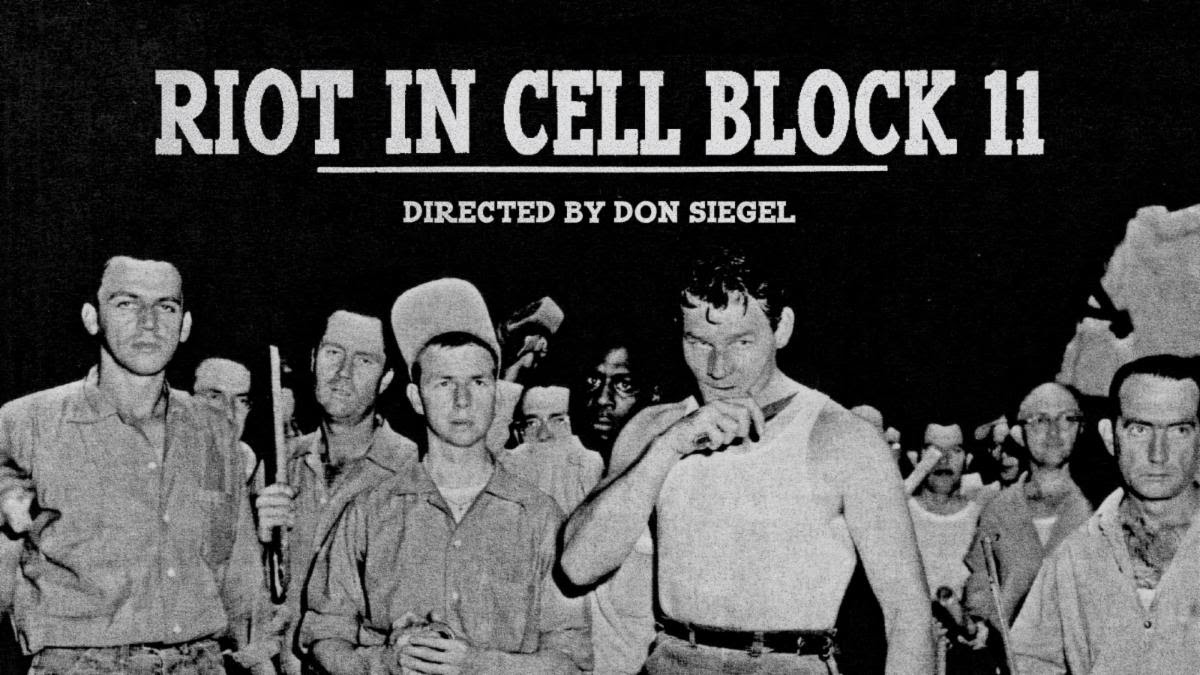
Riot in Cell Block 11: Criterion Collection Edition #704
Early in his career, Don Siegel made his mark with this sensational and high-octane but economically constructed drama set in a maximum-security penitentiary. Riot in Cell Block 11, the brainchild of producer extraordinaire Walter Wanger, is a ripped-from-the-headlines social-problem picture about inmates’ rights that was inspired by a recent spate of uprisings in American prisons. In Siegel’s hands, the film, shot on location at Folsom State Prison, with real inmates and guards as extras, is at once brash and humane, showcasing the hard-boiled visual flair and bold storytelling for which the director would become known. SUPPLEMENTAL FEATURES: Audio commentary by film scholar Matthew H. Bernstein; excerpts from the director’s 1993 autobiography, A Siegel Film, read by his son Kristoffer Tabori; excerpts from the 1953 NBC radio documentary series The Challenge of Our Prisons; and more.
Wednesday, January 27

Short Films by Jennifer Reeder
Featuring a new introduction by the filmmaker
David Lynch meets John Hughes in the surreally sinister teenage dreams of Jennifer Reeder. Evoking the inner worlds of adolescent girls and women at moments of crisis and transformation, she combines hallucinatory Day-Glo visuals, moody synthscapes, and deliberately kitschy touches—DIY props, talking stuffed animals, references to eighties pop culture—to create an alternate Americana that feels at once familiar and unsettlingly uncanny. Laced with Reeder’s feminist spirit, these spellbinding short films are at once eerie and empowering visions of female coming-of-age in all its wonder, terror, and mystery.
- Seven Songs About Thunder, 2010
- Tears Cannot Restore Her: Therefore, I Weep, 2011
- And I Will Rise If Only to Hold You Down, 2012
- A Million Miles Away, 2014
- Blood Below the Skin, 2015
- Crystal Lake, 2016
- LOLA, 15, 2017
- Shuvit, 2017
- All Small Bodies, 2017
Thursday, January 28

30 Years of the Film Foundation: Documentary Shorts by Vittorio De Seta
Heralded by Martin Scorsese as “an anthropologist who speaks with the voice of a poet,” Italian director Vittorio De Seta produced a string of extraordinary short documentaries in the 1950s that distill their subjects to pure cinema. Shooting in vivid color in the rural villages of Sicily, Sardinia, and Calabria, De Seta captured the rhythms and rituals of everyday life among the fishermen, miners, shepherds, and farmers who continued to live and work according to the preindustrial traditions of their ancestors. Presented without voiceover so that the rhapsodic visuals speak for themselves, these miniature marvels stand as essential, ennobling records of a vanished world.
- The Age of Swordfish, 1954
- Islands of Fire, 1954
- Solfatara, 1954
- Easter in Sicily, 1954
- Sea Countrymen, 1954
- Golden Parable, 1954
- Fishing Boats, 1958
- Orgosolo’s Shepherds, 1958
- A Day in Barbagia, 1959
- The Forgotten, 1959
Friday, January 29

Double Feature: Ragin’ Pagans
The Wicker Man and Kill List
A twenty-first-century tour de force of psychological terror pays homage to the grandaddy of folk horror in a brilliantly berserk double bill of British occult classics. Unleashed in 1973 with relatively little fanfare, The Wicker Man has since taken its place as a midnight-movie mainstay thanks to its freaky pagan premise, outré musical interludes, and now-legendary twist ending. Contemporary genre master Ben Wheatley tips his hat to the film’s formidable legacy in his off-the-rails mash-up of kitchen-sink realism, crime thriller, and satanic shocker, Kill List. The less you know going in the better—just take the plunge and brace yourself for Wheatley’s wild ride.
Saturday, January 30

Saturday Matinee: Supa Modo
Obsessed with Jackie Chan and action films, nine-year-old Jo (Stycie Waweru) dreams of being a superhero—but time is not on her side. When the doctors reveal that she is terminally ill, Jo leaves the hospital and returns home to be with her mom and sister. While her mother insists that she stay inside and rest, her sister has different plans. With the entire village’s support, they decide to make dreams a reality and turn Jo into the superhero they know she is. The debut feature from Kenyan filmmaker Likarion Wainaina is an honest and inspiring story about the strength of young people in the face of adversity.
Sunday, January 31
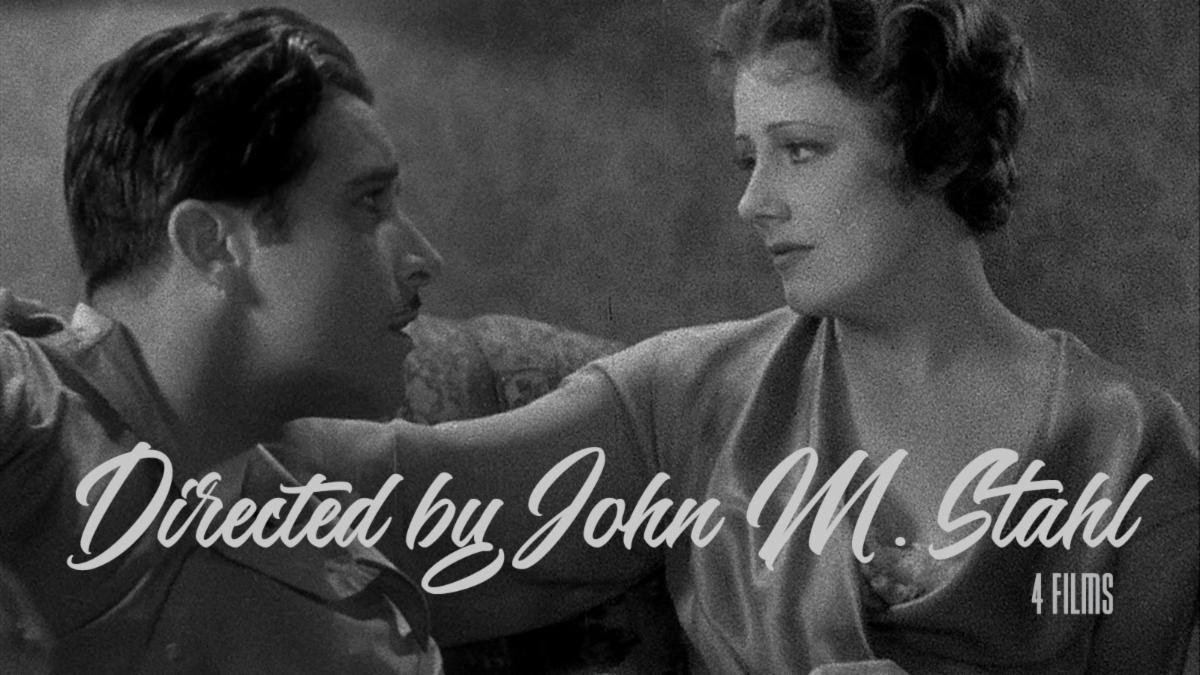
Directed by John M. Stahl
Master of the 1930s Hollywood melodrama John M. Stahl may be best remembered today for the numerous remakes of his films that Douglas Sirk directed in the 1950s, but this original “women’s picture” specialist was a unique and fascinating artist in his own right. While Sirk’s soap operas are famous for their visual excess and slashing irony, Stahl’s films are models of extraordinary sincerity and restraint that, in their stylistic purity, more closely resemble the work of Danish ascetic Carl Theodor Dreyer than any American counterpart. Addressing taboo issues of extramarital relationships (Back Street) and interracial friendship (Imitation of Life) with supreme sensitivity, these selections from Stahl’s heyday at Universal Pictures are quietly subversive in their empathetic understanding of the social constraints and hypocrisies that shape women’s lives.
- Back Street, 1932
- Imitation of Life, 1934
- Magnificent Obsession, 1935
- When Tomorrow Comes, 1939
Plus: Now Playing in 30 Years of the Film Foundation
In November, we kicked off our thirtieth-anniversary celebration for film-preservation powerhouse The Film Foundation, founded by Martin Scorsese in 1990. This month, the lineup welcomes four restored jewels of the 1920s: a silent classic from Victor Sjöström and early talkie triumphs by Alfred Hitchcock, King Vidor, and William Wyler.
- He Who Gets Slapped, Victor Sjöström, 1924
- Blackmail, Alfred Hitchcock, 1929
- Hallelujah, King Vidor, 1929
- Hell’s Heroes, William Wyler, 1929
Complete list of films premiering on the Criterion Channel this month:
- 11’09”01—September 11, Mira Nair, 2002
- The Age of Swordfish, Vittorio De Seta, 1954
- All Small Bodies, Jennifer Reeder, 2017
- And I Will Rise If Only to Hold You Down, Jennifer Reeder, 2012
- Arsenic and Old Lace, Frank Capra, 1944 *
- Awaara, Raj Kapoor, 1951
- Back Street, John M. Stahl, 1932
- Barbarella, Roger Vadim, 1968
- Barefoot in the Park, Gene Saks, 1967
- Betye Saar: Taking Care of Business, Christine Turner, 2020
- Blackmail, Alfred Hitchcock, 1929
- Blood Below the Skin, Jennifer Reeder, 2015
- Bringing Up Baby, Howard Hawks, 1938 *
- The Cameraman, Edward Sedgwick, 1928
- The Chase, Arthur Penn, 1966
- Captain Conan, Bertrand Tavernier, 1996
- Carancho, Pablo Trapero, 2010 *
- Cat Ballou, Elliot Silverstein, 1965
- The China Syndrome, James Bridges, 1979
- The Clockmaker of St. Paul, Bertrand Tavernier, 1974
- Compensation, Zeinabu irene Davis, 1999
- Coup de torchon, Bertrand Tavernier, 1981
- Crocodile Conspiracy, Zeinabu irene Davis, 1986
- Crystal Lake, Jennifer Reeder, 2016
- Cycles, Zeinabu irene Davis, 1989
- Daddy Nostalgia, Bertrand Tavernier, 1990
- A Day in Barbagia, Vittorio De Seta, 1959
- The Day the Mercedes Became a Hat, Mira Nair, 1993
- Death Watch, Bertrand Tavernier, 1980
- A Doll’s House, Joseph Losey, 1973
- Dr. Strangelove, or: How I Learned to Stop Worrying and Love the Bomb, Stanley Kubrick, 1964
- Easter in Sicily, Vittorio De Seta, 1954
- Fishing Boats, Vittorio De Seta, 1958
- The Forgotten, Vittorio De Seta, 1959
- Frantz Fanon: Black Skin, White Mask, Isaac Julien, 1995
- The Ghost of Peter Sellers, Peter Medak, 2018
- Golden Parable, Vittorio De Seta, 1954
- Habaneros, Julien Temple, 2017
- Hallelujah, King Vidor, 1929
- He Who Gets Slapped, Victor Sjöström, 1924
- Hell’s Heroes, William Wyler, 1929
- Homegoings, Christine Turner, 2013
- How Can It Be?, Mira Nair, 2008
- I’m All Right Jack, John Boulting, 1959
- Ice, Robert Kramer, 1970
- Imitation of Life, John M. Stahl, 1934
- The Incredible Shrinking Man, Jack Arnold, 1957
- India Cabaret, Mira Nair, 1985
- Islands of Fire, Vittorio De Seta, 1954
- The Judge and the Assassin, Bertrand Tavernier, 1976
- Kevin Beasley’s Raw Materials, Christine Turner, 2019
- Kill List, Ben Wheatley, 2011
- Kirikou and the Men and Women, Michel Ocelot, 2012
- Klute, Alan J. Pakula, 1971
- The Ladykillers, Alexander Mackendrick, 1955
- The Laughing Club of India, Mira Nair, 2001
- Les saignantes, Jean-Pierre Bekolo, 2005
- Let’s Go Crazy, Alan Cullimore, 1951
- Life and Nothing But, Bertrand Tavernier, 1989 *
- Lion’s Den, Pablo Trapero, 2008 *
- LOLA, 15, Jennifer Reeder, 2017
- Lolita, Stanley Kubrick, 1962
- Magnificent Obsession, John M. Stahl, 1935
- The Man with the Golden Arm, Otto Preminger, 1955
- The Manchurian Candidate, John Frankenheimer, 1962
- Migration, Mira Nair, 2008
- A Million Miles Away, Jennifer Reeder, 2014
- Ministry of Fear, Fritz Lang, 1944
- Monsoon Wedding, Mira Nair, 2001
- The Morning After, Sidney Lumet, 1986
- Mother of the River, Zeinabu irene Davis, 1995
- The Mouse That Roared, Jack Arnold, 1959
- Mr. Topaze, Peter Sellers, 1961
- Never Let Go, John Guillermin, 1960
- Oil City Confidential, Julien Temple, 2009
- The Optimists, Anthony Simmons, 1973
- Orgosolo’s Shepherds, Vittorio De Seta, 1958
- Panique, Julien Duvivier, 1946
- A Powerful Thang, Zeinabu irene Davis, 1991
- The Pub, Joseph Pierce, 2012
- Ray & Liz, Richard Billingham, 2018
- Riot in Cell Block 11, Don Siegel, 1954
- Sangam, Raj Kapoor, 1964
- Sea Countrymen, Vittorio De Seta, 1954
- Seven Songs About Thunder, Jennifer Reeder, 2010
- Shree 420, Raj Kapoor, 1955
- Shuvit, Jennifer Reeder, 2017
- So Far from India, Mira Nair, 1983
- Solfatara, Vittorio De Seta, 1954
- A Sunday in the Country, Bertrand Tavernier, 1984
- The Talk of the Town, George Stevens, 1942
- Tears Cannot Restore Her: Therefore, I Weep, Jennifer Reeder, 2011
- Tom Thumb, Olivier Dahan, 2001
- Walk on the Wild Side, Edward Dmytryk, 1962
- A Week’s Vacation, Bertrand Tavernier, 1980
- When Tomorrow Comes, John M. Stahl, 1939
- White Elephant, Pablo Trapero, 2012**
- Zoo, Will Niava, 2020
*Available in the US only.


